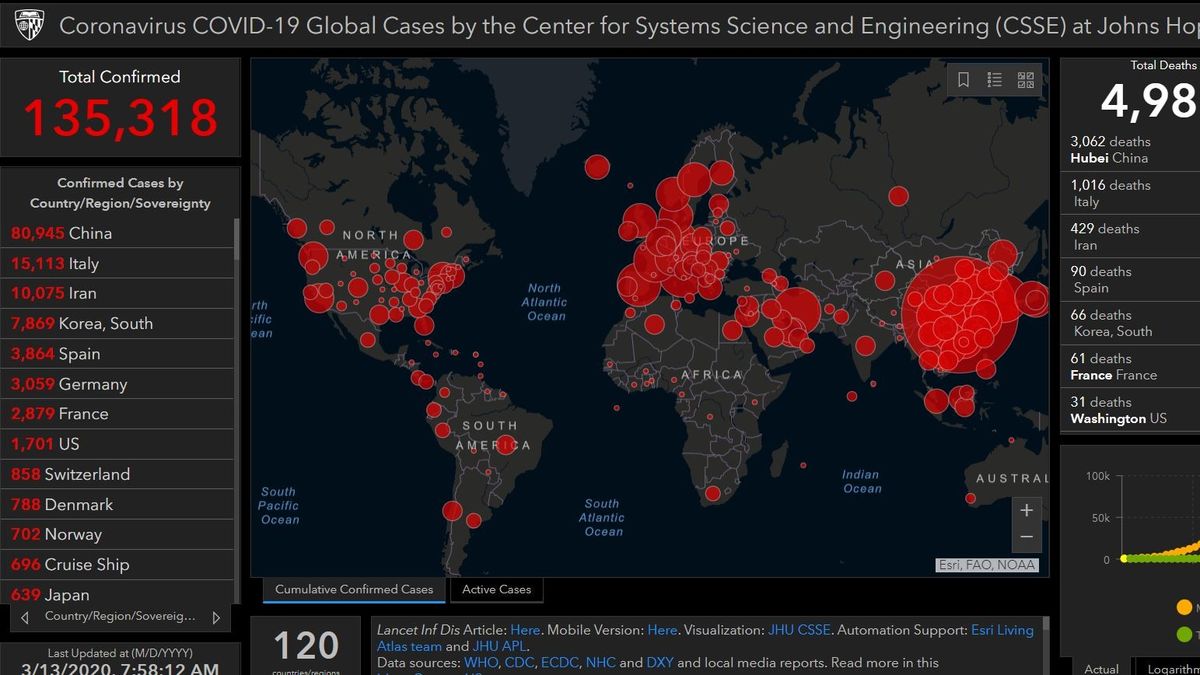Coronavirus is being exploited by hackers to spread malware: What to do
Here is how to protect your PC from coronavirus malware

Be careful when you're browsing the web for the latest information on the coronavirus: the website you open might infect your computer.
Hackers are exploiting fear caused by the coronavirus to spread malware onto the laptops of innocent victims.
- Microsoft says 99.9% of accounts get hacked for this reason
- Coronavirus could cause HUGE shock to PC shipments in 2020
- Coronavirus leads to free video conferencing software
Whenever the global search traffic increases for a specific topic, it gives bad actors a host on which to grow malicious software. Right now, that topic is a global pandemic. Knowing millions of people are searching for news on the subject, hackers are creating websites that pose as legitimate news sources but contain malicious code.
Worse yet, these sites look legitimate. In fact, they even provide real-time, accurate data about the virus. In one instance, hackers created a dangerous website with a dashboard produced by Johns Hopkins University that shows coronavirus infections and deaths, Reason Cybersecurity reports.
When an innocent websurfer downloads the map, its malicious code injects their machine with an AZORult Trojan that tries to "steal browsing history, cookies, ID/passwords, cryptocurrency and more," Shai Alfasi, a researcher at Reason Cybersecurity, wrote.
Bad actors could even take over your computer with "a variant of the AZORult that creates a new, hidden administrator account on the infected machine in order to allow Remote Desktop Protocol (RDP) connections", Alfasi explains.
Cybercriminals were able to create such a convincing website because Johns Hopkins posted the source code of its coronavirus map on GitHub.
Stay in the know with Laptop Mag
Get our in-depth reviews, helpful tips, great deals, and the biggest news stories delivered to your inbox.
This is just one of many attacks that leverages the coronavirus for self-gain. Cybersecurity firm FireEye (via TechCrunch) said it has seen an increase in spearphishing campaigns from hackers in China, North Korea and Russia.
How to protect yourself from coronavirus malware
Johns Hopkins spokesperson Jill Rosen said the university knows about the malicious website posting as a COVID-19 source, and warns against using any other coronavirus-tracking maps apart from the official one.
It's disheartening that someone would exploit a global pandemic, one that has spread to 138,000 people and led to more than 5,000 deaths.
There are simple ways to avoid being the victim of these despicable crimes. First, be suspicious of websites posted to social media -- search engines typically yield safer results than what your friends are posting. Also, don't download any file before verifying the source. And, as always, download a good antivirus software.
Phillip Tracy is the assistant managing editor at Laptop Mag where he reviews laptops, phones and other gadgets while covering the latest industry news. After graduating with a journalism degree from the University of Texas at Austin, Phillip became a tech reporter at the Daily Dot. There, he wrote reviews for a range of gadgets and covered everything from social media trends to cybersecurity. Prior to that, he wrote for RCR Wireless News covering 5G and IoT. When he's not tinkering with devices, you can find Phillip playing video games, reading, traveling or watching soccer.
